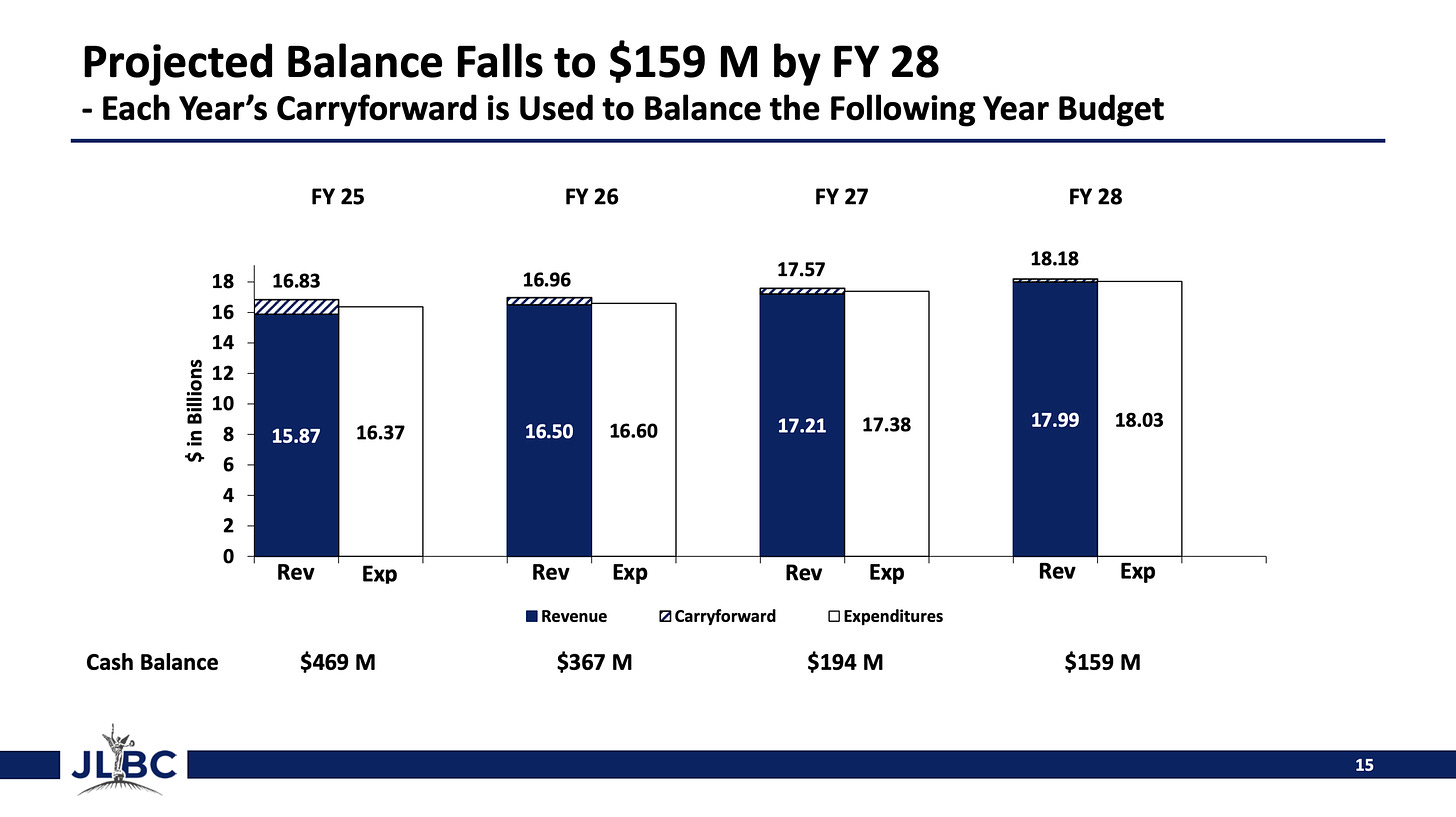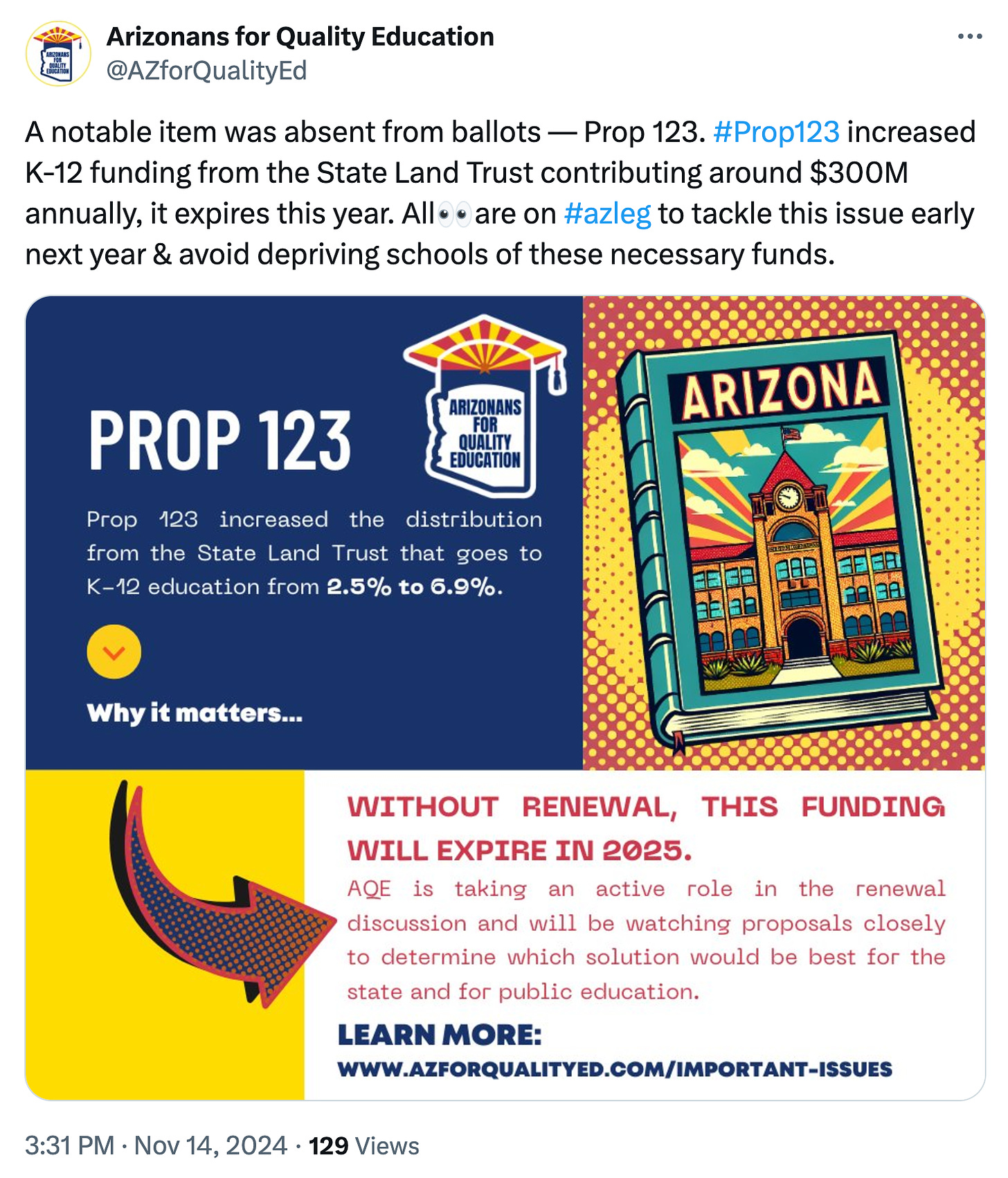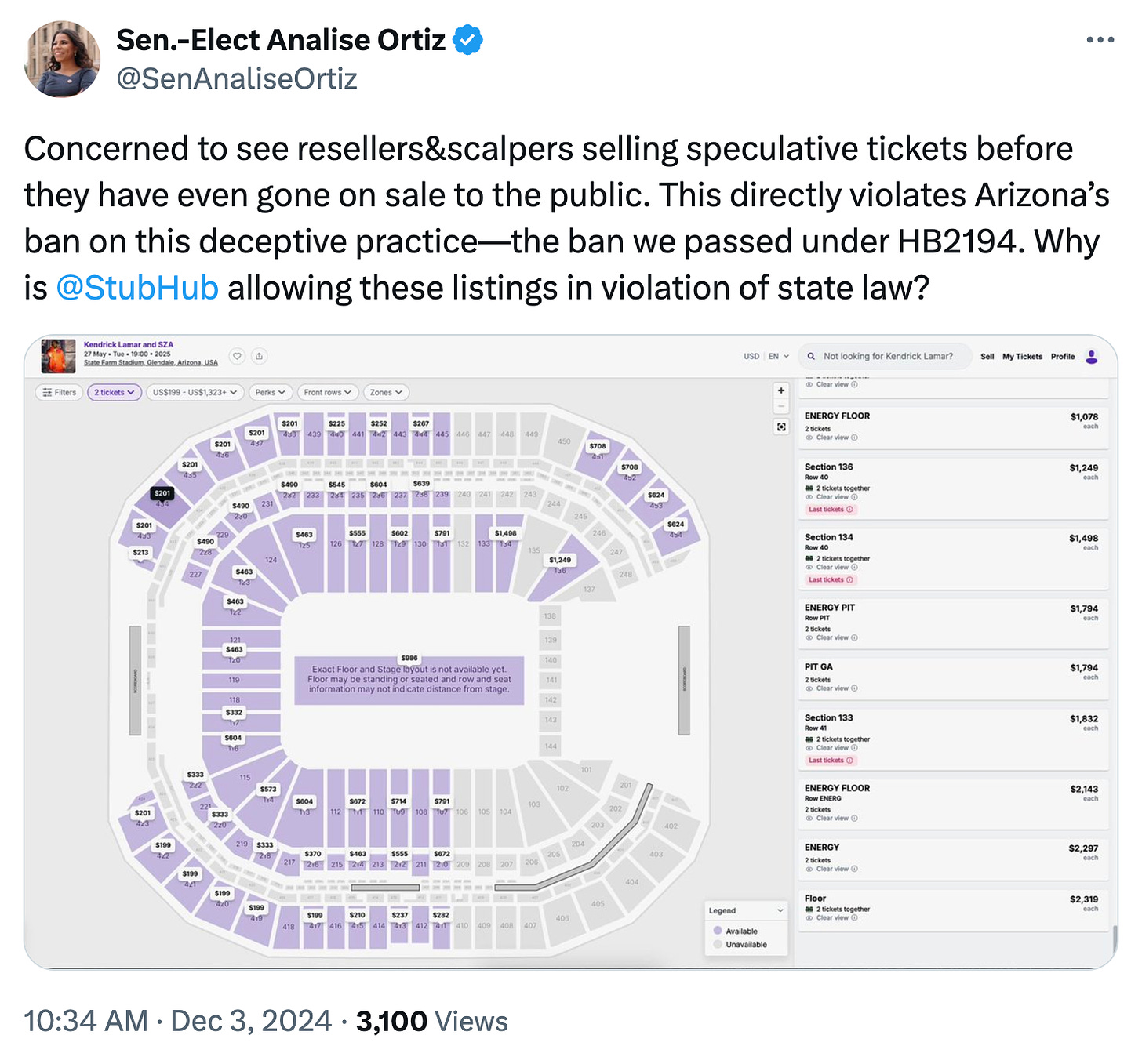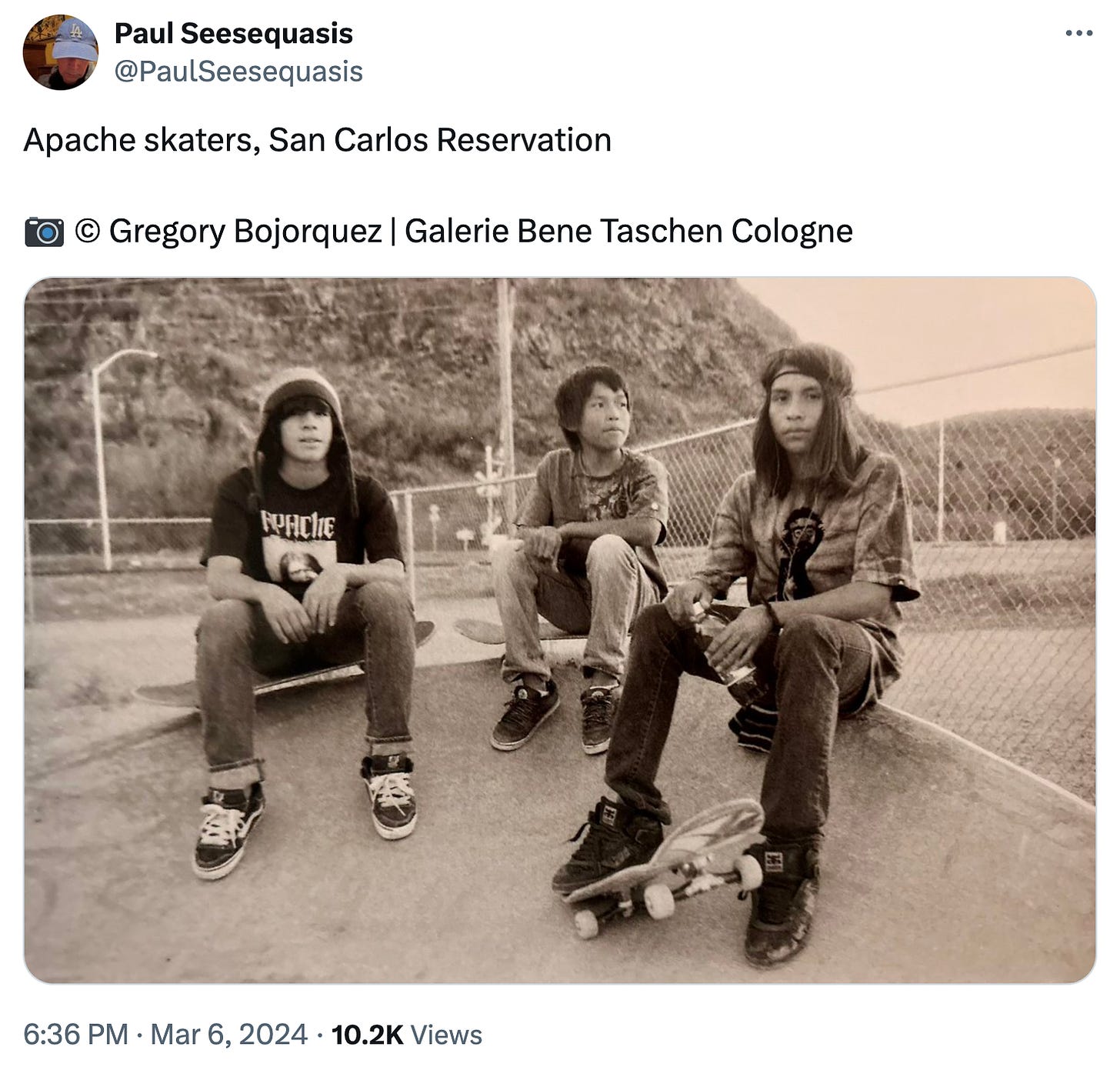Year in review: Budget busters
High times and low times … Election deniers win election to run elections … And our art intern sure is busy.
In 2023, lawmakers were living large.
The state coffers were overflowing with cash, and during a year of record-smashing vetoes, Republican lawmakers and newly elected Democratic Gov. Katie Hobbs found one area of agreement: spending your money.
And spend they did.
They doled out up to $30 million for each lawmaker who voted for the budget to fund their own pet project, ushering in $1.8 billion in new spending. They bought new roads in their districts, upgraded local rodeo grounds, put millions into the state housing trust fund and even offered every family in Arizona a tax rebate.
Turns out they overspent.
By the time the 2024 legislative session opened, lawmakers were staring down a nearly $2 billion anticipated budget shortfall over two years.
So they started cutting.
They cut hundreds of millions of dollars of new road projects they had just approved the year before. They cut nearly a half-billion from water infrastructure projects. They cut from opioid treatment, cut universities, and shrank state departments almost across the board.
In corporate-speak, they right-sized the ship.
In January, lawmakers will return to the Capitol with some funds to spend. But not much.
The latest numbers from the legislative numbers crunchers show the state has somewhere around $660 million surplus this year — assuming revenues keep up with forecasts. However, much of that new money could be eaten up by “caseload growth,” essentially more people depending on state services like education or healthcare. It might be more like $0 in new discretionary spending, depending on how many financial gimmicks lawmakers want to pull.
Meanwhile, nearly every state agency is asking the Governor’s Office for some kind of budget increase — universities, for example, want about $750 million more from the state General Fund, the Department of Economic Security wants about $450 million more and AHCCCS wants another $250 million.
And those are just the three largest asks.
Altogether, state agencies and departments are seeking an additional $2 billion in funding.
That clearly isn’t happening.
At the same time, Arizona is eyeing a potential budget-buster if lawmakers can’t approve a plan to extend Prop 123. The proposition, which voters approved a decade ago, allows the state to pull additional money out of the state land trust to ensure education funding keeps up with inflation. And it’ll expire in July.
Those inflation increases are mandatory, so if lawmakers can’t come up with a plan to extend Prop 123, the roughly $300 million per year that it provides will have to come out of the state budget.
Last year, negotiations stalled out after Republicans and Democrats proposed different Prop 123 extension plans — Republicans wanted to ensure the entirety of the funding went directly to teacher salaries, while Democrats wanted to increase the draw from the state land trust and split it between general school funding, teacher pay, support staff raises and school security improvements.
Lawmakers will need to settle the issue before even starting to budget for the year — and any extension needs to be approved roughly by February to put the question to voters on a special election ballot before the proposition expires in July.
Then there’s the politics of passing a budget in 2025.
Lawmakers won’t be able to whip votes by passing out slush funds, à la 2023. And after a 2021 court ruling, they can’t rely on the tried and true method of lumping unrelated policy into the budget as an incentive for reluctant lawmakers to vote for it.
This year, it wasn’t until mid-June that a bipartisan cast of lawmakers held their noses and voted for the budget that made some deep cuts.
The alternative was blowing their deadline and shutting down the government on July 1.
In 2025, lawmakers won’t have much money to spend. And they won’t have to make deep cuts. Really, they don’t have a lot to fight over — budget-wise.
It could be a relatively easy process.
Then again, nothing motivates like a deadline.
Speaking of budgets and deadlines…
The Agenda is an independent, subscriber-supported publication. That means we don’t have some liberal/conservative billionaire funding us, and we can’t raise your taxes to pay for local journalism.
Almost all of our budget comes from you, dear reader. And we’d be immensely grateful if you could help support our work.
The skeptics take control: Maricopa County is swapping out officials who’ve defended election security with some new electeds who’ve repeatedly questioned it, including incoming County Recorder Justin Heap, who said he’s considering shake-ups to staffing, cleaning up voter rolls and changing how mail ballots are tracked, Votebeat’s Jen Fifield reports. Several new county supervisors said they want to speed up the vote-counting process, and they’ll now be in control of information technology and ballot processing under a new agreement. Heap, however, said he wants a different arrangement.
Switching gears: Pinal County’s attorney-elect Brad Miller is dropping his legal defense of former AZGOP Chair Kelli Ward and her husband Michael Ward in Arizona’s fake elector case, Pinal Central’s Noah Cullen writes. Miller has argued the case is politically motivated but decided not to concurrently work his elected position and as a defense attorney for the duo. Miller also defended state Sen. Justine Wadsack in her criminal speeding case, which she called political persecution.
Banning homelessness: Tempe will implement “strict enforcement” of its urban camping ban after the fall of Grants Pass, a court case the U.S. Supreme Court overturned that said citing people for sleeping outside is cruel and unusual punishment if they have no other place to go. The camping ban has been in place since 1997, and the city said in a press release it will offer “outreach services” and give one warning to those in violation. The second violation will be considered a class 1 misdemeanor that comes with a fine of up to $2,500 or up to six months imprisonment.
If at first you don’t succeed: The first slate of bills filed for 2025 would speed up vote counting and restrict transgender students from using the bathroom corresponding to their gender identity — two topics Gov. Katie Hobbs shut down last legislative session, per the Republic’s Mary Jo Pitzl. Sen. JD Mesnard filed a bill to cut off early ballot returns to the Friday before Election Day, while Sen. John Kavanagh resurrected his bill to make public school students use the bathrooms designated to the sex they were assigned at birth.
We’ll be tracking all the crazy bills that come with 2025’s legislative session. Subscribe to follow along.
Deadly records: Phoenix Police have killed 13 people this year, surpassing 2023’s total of 12 deaths, per Phoenix New Times’ TJ L'Heureux. This year’s total is underpinned by a federal investigation that found (among many other troubling things) that the department uses excessive force. Meanwhile, firearm-related deaths among children have spiked 170% in the past decade, per the Arizona Public Health Association’s 2023 child fatality review, KJZZ’s Natalie Guzman writes. The report outlines ways to stop the trend, particularly through safe firearm storage.
Noticeably absent: In the San Carlos Unified School District, 73% of kids missed more than 10% of the 2022-2023 school year, and while schools are still struggling with COVID-19-induced attendance issues, Native American students miss school at far higher rates, per the Associated Press. There are a lot of reasons for the disparity, but San Carlos schools have implemented cultural success coaches to keep students' attendance rates up.
What’s a super worth?: The Liberty Elementary School District board in Buckeye gave its superintendent a 20% pay bonus amounting to about $37,000 on top of a $185,000 salary, despite objections the money would be better spent on teacher pay, Arizona Family’s Sarah Robinson reports.
Minnesota’s Attorney General asked Stanford Professor Jeff Hancock to support new legislation that bans using deepfakes to influence elections. A similar bill from Arizona Rep. Alexander Kolodin passed this year.
Hancock made an “expert declaration” in his backing of the law, per the Minnesota Reformer, and it seems to be at least partially written by ChatGPT and cites sources that can’t be traced anywhere.
The best part? He’s a leading expert on technology and misinformation.












Amazing how far off they are on the budget just about every year. This is not that common in the other 49 states.
Always an informative read. Thanks.